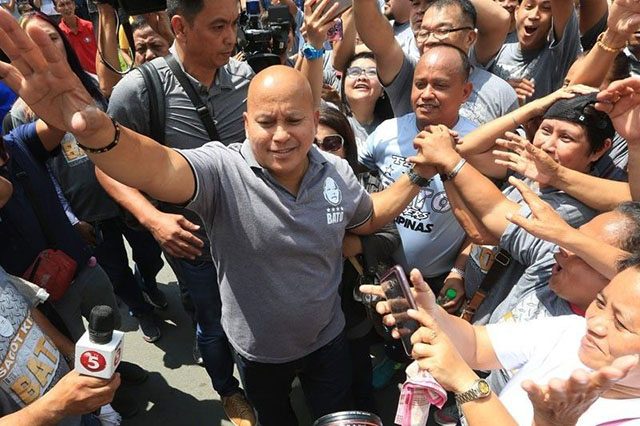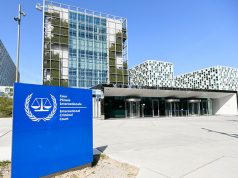
When neophyte Sen. Bato dela Rosa shrugged off the death of a three-year old child in a drug sting in Rizal as “collateral damage,” social media refused to forgive him.
“S**t happens during operations,” he told reporters at the Senate on July 4.
Dela Rosa, who served as police chief and enforcer of President Duterte’s bloody drug war, defended his former personnel over the deaths of Myka Ulpina, her father Renato Dolorfina, and former cop Conrad Cabigao during a drug operation in Rizal.
“Aminin ko sa inyo, mayroong nangyayari na talagang in the course of operations, honest to goodness na talagang may nagiging collateral damage,” he added.
Such downplaying of the incident triggered public outrage given the rising number of children being killed either as targets or collateral damage in the drug war marked by thousands of casualties in just 4 years.
Condemnation
Kabataan Party-list said that Dela Rosa’s comment shows the government does not really care for children, particularly those from impoverished families.
“Instead of providing adequate social services such as education and healthcare to give children the quality life that would make them realize their potentials, children and youth have been further deprived of a bright future under the Duterte administration,” it said on Facebook.
“Children are treated as mere collateral damage of the bloody wars Duterte has been waging,” it added.
Human rights lawyer Chel Diokno, who lost the senatorial elections, hoped that justice will come for the family of Ulpina and others whose children became victims of drug stings.
Others thought Dela Rosa’s comment was heartless and uncaring.
"SHIT HAPPENS" was first used in the film "Forrest Gump." It was edited to "it happens' for international audience. Now, it's Bato's battle cry. It embodies his uncaring attitude for the death of he three-year tot, who was killed in a bloody but unwinnable anti-drug war. 😧😧😧
— Philip Lustre Jr. (@IpeLustre) July 4, 2019
Dela Rosa on 3-year-old's death in drug bust: 'Shit happens' – https://t.co/hvMhzLAcsy: Bato’s reaction is the real shit that happened. 😡😡😡 https://t.co/pU4BwcQquP
— joeytrenas77 (@joeytrenas77) July 4, 2019
A three year old kid gets killed in the drug war and all Bato could say is that shit happens? No, dude. Sometimes shit gets elected.
— Kip Oebanda (@kipoebanda) July 4, 2019
Mounting calls for investigation into drug war deaths
Following this incident, New York-based Human Rights Watch urged the United Nations Human Rights Council to act on a resolution initiated by Iceland that seeks an investigation into killings in the Philippines’ drug war.
“The resolution on the table is a modest first step, but if passed and implemented it can make significant inroads towards stopping the carnage in the Philippines,” researcher Carlos Conde of the HRW said.
A group of human rights activists called iDefend said that more than two dozen countries, mostly from Europe, filed the resolution.
The forum will vote on it before its three-week session ends on July 12.
Ellecer “Budit” Carlos of the Manila-based group said that at least 27,000 people were already killed within three years of Duterte’s narcotics crackdown.
This ran counter to the 5,000 suspects killed based on the latest reported tally of the Philippine Drug Enforcement Agency early this year.
“Here we are three years later with 27,000 killed, among the most impoverished, in a massive crackdown. That is a conservative estimate. In a non-armed conflict context, this is the worst case of extrajudicial killings globally,” Carlos said.
Last June, UN experts also asked the UNCHR to conduct the same investigation. These experts, including the special rapporteur on summary killings Agnes Callamard, are independent and do not speak on behalf of the international body itself.
Palace spokesman Salvador Panelo called this move an “outrageous interference” in Philippine sovereignty. The Philippines, however, has long been part of the treaty that formed the international bodies aiming to protect human rights.
Dela Rosa is among the accused of crimes against humanity in a complaint filed before the International Criminal Court. The court’s prosecutors are currently conducting a preliminary investigation to examine its jurisdiction to pursue the case against Dela Rosa, Duterte and other perceived architects of the drug war.
Comments from the ICC prosecutor prompted the Duterte government to withdraw from the tribunal which took effect last March.









